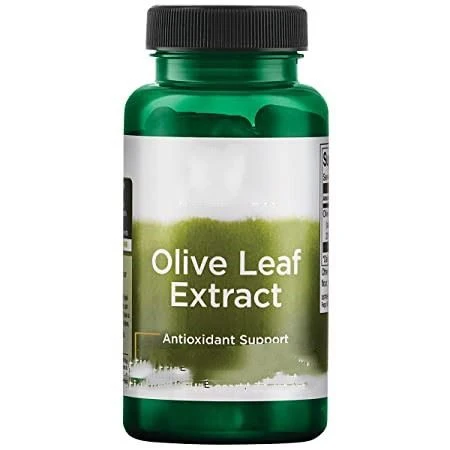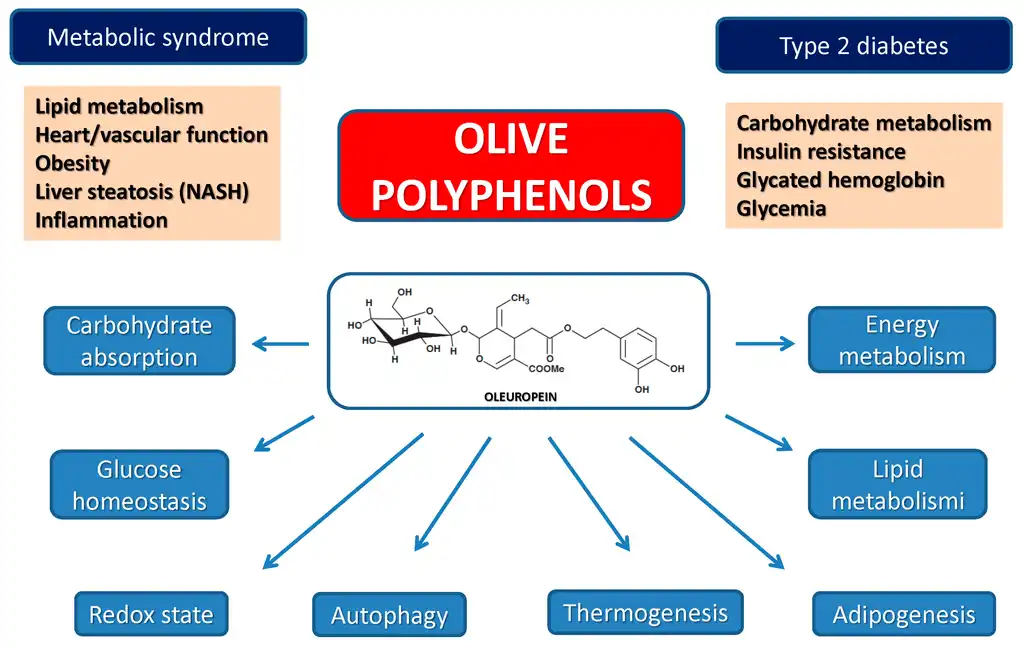Oleuropein Powder Suppliers: Essential Tips for First-Time Buyers
Navigating the complex landscape of oleuropein powder suppliers can be overwhelming for first-time buyers seeking premium natural extracts. With the growing demand for organic olive leaf powder and its derivatives in pharmaceutical, nutraceutical, and cosmetic industries, understanding how to select reliable oleuropein powder suppliers becomes crucial for business success. This comprehensive guide provides essential insights into supplier evaluation, quality standards, and procurement strategies to help new buyers make informed decisions when sourcing this valuable botanical extract from trusted manufacturers.

Understanding Quality Standards and Certifications for Oleuropein Powder Suppliers
Essential Certifications That Define Reliable Suppliers
When evaluating oleuropein powder suppliers, certifications serve as the foundation for quality assurance and regulatory compliance. Leading manufacturers typically hold multiple international certifications that validate their production processes and product quality. The most critical certifications include ISO9001 for quality management systems, which ensures consistent production standards and customer satisfaction protocols. Additionally, food safety certifications such as ISO22000 and HACCP demonstrate a supplier's commitment to maintaining hygienic production environments and preventing contamination risks throughout the manufacturing process. Organic certifications play an equally important role, particularly for buyers seeking organic olive leaf powder. EU-ORGANIC and USA-ORGANIC certifications guarantee that the raw materials are sourced from certified organic farms and processed according to strict organic standards without synthetic pesticides, fertilizers, or GMOs. Religious certifications like KOSHER and HALAL expand market opportunities by ensuring products meet specific dietary requirements, making them suitable for diverse consumer populations. FDA registration provides additional credibility, indicating that the manufacturing facility meets stringent U.S. regulatory standards for safety and quality control.Third-party testing certifications from organizations like SGS (Société Générale de Surveillance) offer independent verification of product purity, potency, and safety parameters. These certifications demonstrate that oleuropein powder suppliers maintain transparency in their quality control processes and submit to regular audits by external regulatory bodies. When selecting suppliers, buyers should verify the validity and current status of all certifications, as expired or fraudulent certificates can lead to regulatory compliance issues and compromise product integrity.
Quality Parameters and Testing Protocols
Professional oleuropein powder suppliers implement comprehensive testing protocols to ensure consistent product quality and potency. The primary quality parameter for oleuropein powder is the active compound concentration, typically standardized between 6% to 40% oleuropein content depending on the intended application. High-Performance Liquid Chromatography (HPLC) testing serves as the gold standard for measuring oleuropein concentration, providing accurate and reproducible results that meet pharmaceutical and nutraceutical industry requirements. Microbiological testing represents another critical quality parameter, encompassing total bacterial count, yeast and mold levels, and pathogen screening for harmful organisms like Salmonella, E. coli, and Staphylococcus aureus. Reputable suppliers maintain strict microbiological limits that comply with international pharmacopoeia standards and provide certificates of analysis (COA) for each production batch. Heavy metal testing for lead, mercury, cadmium, and arsenic ensures that the organic olive leaf powder meets safety limits established by regulatory authorities worldwide. Residual solvent analysis becomes particularly important when suppliers utilize extraction methods involving organic solvents. Professional manufacturers employ gas chromatography techniques to verify that solvent residues remain below acceptable limits as defined by pharmacopoeia standards. Physical parameters such as particle size distribution, moisture content, bulk density, and color consistency also influence product quality and functionality in end-use applications. Established oleuropein powder suppliers provide detailed specifications for all these parameters and maintain batch-to-batch consistency through rigorous quality control protocols.
Regulatory Compliance and Documentation Requirements
Comprehensive documentation packages distinguish professional oleuropein powder suppliers from less reliable sources. Essential documents include certificates of analysis for each production batch, containing detailed test results for purity, potency, microbiological safety, and heavy metal content. Manufacturing certificates should demonstrate compliance with Good Manufacturing Practices (GMP) and include facility registration numbers, production dates, and quality control personnel signatures. Import/export documentation becomes crucial for international transactions, requiring suppliers to provide proper customs classifications, phytosanitary certificates for plant-based materials, and country-specific regulatory compliance statements. Many buyers require suppliers to maintain comprehensive traceability records that track raw materials from source farms through processing and final packaging. This documentation proves particularly valuable for organic olive leaf powder, where organic integrity must be maintained throughout the entire supply chain. Stability testing data and shelf-life validation studies provide buyers with confidence in product longevity and storage requirements. Professional suppliers conduct real-time and accelerated stability testing under various environmental conditions to establish accurate expiration dates and storage recommendations. Regulatory status documents should clearly indicate whether the oleuropein powder is approved for use in specific markets and applications, including novel food approvals, GRAS (Generally Recognized as Safe) status, and pharmaceutical excipient approvals where applicable.

Evaluating Production Capacity and Supply Chain Reliability
Manufacturing Scale and Production Capabilities
Assessing production capacity helps buyers determine whether potential oleuropein powder suppliers can meet their volume requirements consistently. Leading manufacturers typically operate facilities capable of producing thousands of tons annually, with specialized equipment for extraction, purification, and standardization processes. Modern production facilities employ advanced extraction technologies such as supercritical CO2 extraction, ultrasonic extraction, or specialized solvent systems that maximize oleuropein yield while preserving bioactive compounds. Geographic location plays a significant role in supplier selection, as proximity to raw material sources can impact both cost and quality. Suppliers located in regions with abundant olive cultivation, such as Mediterranean countries or areas with similar climatic conditions, often have advantages in sourcing fresh, high-quality olive leaves for organic olive leaf powder production. Additionally, strategic locations near major transportation hubs facilitate efficient logistics and reduce shipping costs for international buyers. Production flexibility represents another crucial factor, particularly for buyers requiring custom formulations or specific particle sizes. Established oleuropein powder suppliers often provide toll manufacturing services, private labeling options, and custom packaging solutions to meet diverse customer requirements. Equipment capabilities such as spray drying, fluid bed drying, or freeze-drying technologies enable suppliers to produce different powder characteristics suitable for various applications, from pharmaceutical tablets to dietary supplement capsules.
Supply Chain Transparency and Traceability
Transparent supply chains demonstrate supplier reliability and enable buyers to verify product authenticity and quality. Professional oleuropein powder suppliers maintain detailed records of raw material sources, including specific olive cultivars, harvest dates, geographic origins, and agricultural practices employed by partner farms. This information becomes particularly important for organic olive leaf powder, where maintaining organic integrity requires documented traceability from farm to finished product. Supplier partnerships with certified organic farms or cultivation cooperatives often indicate stable raw material access and consistent quality standards. Long-term relationships with raw material providers enable suppliers to implement quality control measures at the agricultural level, including soil testing, pesticide residue monitoring, and harvest timing optimization to maximize oleuropein content in fresh olive leaves. Inventory management practices reveal supplier reliability and ability to meet delivery commitments. Established manufacturers typically maintain strategic inventory levels of finished products and raw materials to accommodate fluctuating demand and seasonal variations in raw material availability. Climate-controlled storage facilities with appropriate temperature and humidity controls preserve product quality during extended storage periods, while automated inventory tracking systems ensure accurate stock level monitoring and timely procurement planning.
Logistics and Distribution Networks
Efficient logistics networks enable reliable product delivery and minimize supply chain disruptions. Professional oleuropein powder suppliers typically partner with international freight forwarders and express courier services to provide flexible shipping options for customers worldwide. Cold chain logistics capabilities become essential for temperature-sensitive organic olive leaf powder products that require refrigerated storage and transportation to maintain potency and stability. Packaging expertise significantly impacts product integrity during transportation and storage. Experienced suppliers utilize appropriate packaging materials such as pharmaceutical-grade drums, moisture-barrier bags, or vacuum-sealed containers that protect against moisture, oxygen, and light exposure. Proper labeling with product identification, lot numbers, storage instructions, and regulatory compliance statements facilitates smooth customs clearance and inventory management for buyers. Regional distribution centers or local warehousing capabilities can reduce shipping costs and delivery times for frequent orders. Some established suppliers maintain inventory in key markets such as North America, Europe, and Asia-Pacific regions, enabling faster response to customer demands and reducing the impact of international shipping delays or disruptions on supply continuity.
Cost Optimization and Long-term Partnership Strategies
Pricing Structure Analysis and Budget Planning
Understanding pricing mechanisms helps first-time buyers develop realistic budgets and identify cost-effective oleuropein powder suppliers. Pricing typically varies based on factors such as oleuropein content concentration, order quantities, packaging specifications, and delivery terms. Higher standardization levels command premium prices due to increased processing requirements and quality control testing, while bulk orders generally qualify for volume discounts that can significantly reduce per-unit costs. Market price fluctuations often correlate with raw material availability and seasonal variations in olive leaf harvesting. Professional suppliers provide price stability through long-term contracts or advance purchase agreements that protect buyers from unexpected price increases during peak demand periods. Transparent pricing structures should include detailed breakdowns of material costs, processing fees, testing charges, packaging expenses, and logistics costs to enable accurate cost comparisons between different suppliers. Currency fluctuation considerations become important for international transactions, particularly when dealing with suppliers in different countries. Some oleuropein powder suppliers offer pricing in multiple currencies or provide hedging options to minimize exchange rate risks for long-term contracts. Payment terms flexibility, including letters of credit, advance payments, or extended payment periods, can improve cash flow management for buyers while building trust with suppliers.
Quality Assurance Versus Cost Balance
Balancing quality requirements with cost constraints requires careful evaluation of essential quality parameters versus nice-to-have specifications. Premium oleuropein powder suppliers often charge higher prices but provide superior consistency, comprehensive documentation, and reliable technical support that can reduce downstream costs associated with quality issues or regulatory compliance problems. Conversely, lower-priced suppliers may require additional quality verification testing or impose higher minimum order quantities that offset apparent savings. Value-added services such as technical support, custom formulation development, or regulatory assistance can justify higher supplier costs by reducing internal resource requirements. Experienced suppliers often provide application guidance, stability testing data, and formulation recommendations that accelerate product development timelines and improve success rates for new product launches. These services become particularly valuable for buyers entering new markets or developing innovative applications for organic olive leaf powder. Risk assessment should consider potential costs associated with supplier failures, including product recalls, regulatory violations, or supply disruptions. Established oleuropein powder suppliers with comprehensive quality systems and financial stability typically present lower risk profiles despite higher initial costs. Insurance coverage for product liability and supply chain disruptions provides additional risk mitigation but may be reflected in supplier pricing structures.
Building Strategic Supplier Relationships
Long-term partnership development creates mutual benefits for buyers and oleuropein powder suppliers through improved communication, customized solutions, and preferential treatment during supply constraints. Regular business reviews, joint product development projects, and collaborative forecasting enable suppliers to better understand customer requirements and provide proactive support for business growth initiatives. Communication protocols should establish clear expectations for order processing, quality issues, delivery schedules, and technical support response times. Professional suppliers typically assign dedicated account managers or technical specialists to major customers, facilitating efficient problem resolution and ensuring consistent service quality. Regular facility visits or virtual tours enable buyers to verify supplier capabilities and maintain awareness of operational changes that might impact product quality or availability. Strategic partnerships often include exclusive arrangements, priority allocation during supply shortages, or collaborative marketing initiatives that provide competitive advantages in the marketplace. Joint participation in trade shows, technical conferences, or industry associations strengthens supplier relationships while providing opportunities for market intelligence and business development. These partnerships become particularly valuable for buyers seeking to differentiate their products through superior raw material quality or innovative applications of organic olive leaf powder.
Conclusion
Selecting the right oleuropein powder suppliers requires careful evaluation of quality standards, production capabilities, and partnership potential to ensure long-term business success. Professional suppliers distinguish themselves through comprehensive certifications, transparent supply chains, and consistent product quality that meets the demanding requirements of pharmaceutical, nutraceutical, and cosmetic industries. By prioritizing suppliers with proven track records, robust quality systems, and strategic advantages, first-time buyers can establish reliable partnerships that support their business growth objectives.
Shaanxi Pioneer Biotech Co., Ltd. exemplifies the characteristics of a trusted China oleuropein powder suppliers factory, combining strategic location advantages in the Qinling Mountains herb valley with comprehensive international certifications and scaled production capabilities exceeding 3,000 tons annually. As a leading China oleuropein powder suppliers supplier and China oleuropein powder suppliers manufacturer, Pioneer Biotech offers competitive China oleuropein powder suppliers wholesale pricing while maintaining the highest quality standards. Their extensive product portfolio includes premium oleuropein powder suppliers for sale at competitive oleuropein powder suppliers price points, backed by High Quality oleuropein powder suppliers certification and comprehensive technical support. For inquiries about their premium organic olive leaf powder and custom formulation services, contact their experienced team at sales@pioneerbiotech.com to discover how their expertise can support your business success.
References
1. Bendini, A., Cerretani, L., Carrasco-Pancorbo, A., Gómez-Caravaca, A. M., Segura-Carretero, A., Fernández-Gutiérrez, A., & Lercker, G. (2007). Phenolic molecules in virgin olive oils: a survey of their sensory properties, health effects, antioxidant activity and analytical methods. Molecules, 12(8), 1679-1719.
2. El, S. N., & Karakaya, S. (2009). Olive tree (Olea europaea) leaves: potential beneficial effects on human health. Nutrition Reviews, 67(11), 632-638.
3. Benavente-García, O., Castillo, J., Lorente, J., Ortuño, A., & Del Rio, J. A. (2000). Antioxidant activity of phenolics extracted from Olea europaea L. leaves. Food Chemistry, 68(4), 457-462.
4. Visioli, F., Poli, A., & Gall, C. (2002). Antioxidant and other biological activities of olive mill waste waters. Journal of Agricultural and Food Chemistry, 50(7), 1934-1940.



